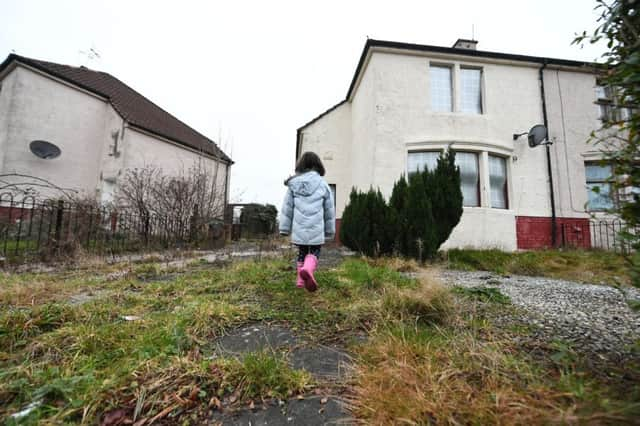Thousands of families take £64-a-week benefits hit


Research by the Scottish Government found a total of 3,320 households had their benefits capped as of May last year.
Among those who had their housing benefit payments limited, the average amount capped was £64 a week – the equivalent to almost £3,330 a year.
Advertisement
Hide AdAdvertisement
Hide AdHousing minister Kevin Stewart claimed UK government welfare cuts were “squeezing more families into poverty”.
The report also warned mixed-age couples – when one person is of pension age, but their partner is of working age – could be left up to £7,000 a year worse off by welfare changes.
As of May 2019, these couples are no longer able to claim pension credit, which tops up their income to £12,940 a year, and must instead claim Universal Credit, which entitles them to just under £5,990 a year. While this affects an estimated 1,400 households in the existing financial year, the total number who lose out could rise to an estimated 5,600 in 2023-24, according to the report.
The annual study examining the impact of UK government welfare reforms on Scotland found that overall, the benefits freeze could reduce social security spending by £300 million a year, with this affecting most of the 460,000 Scots claiming either housing benefits or the housing element of Universal Credit.
The report said the benefits cap, which was introduced in 2013 to limit the amount any household can receive in means-tested welfare payments, “disproportionately affects families with children”.
Under the system, payments are capped at £20,000 a year in Scotland, although there is a lower limit of £13,400 for single people with no children.
Data from May last year showed of the 2,730 households whose housing benefits payments had been capped, two-thirds were single parent families, with only 9 per cent not having any children.
There were also difficulties for those on housing benefit when renting a home in the private sector, with the report finding only 11 out of 90 local housing allowance rates are set at a level that would allow someone to rent a home in the bottom 30 per cent of the market.
Advertisement
Hide AdAdvertisement
Hide AdMr Stewart said: “UK government welfare cuts are squeezing more families into poverty and leaving them struggling to afford appropriate accommodation.”
A spokeswoman for the UK Department for Work and Pensions said: “Since 2011, we have provided around £1 billion to local authorities to make Discretionary Housing Payments and in 2020-21, we will make an additional £40m available.”